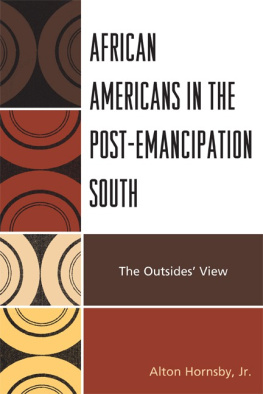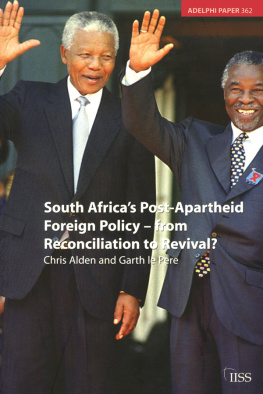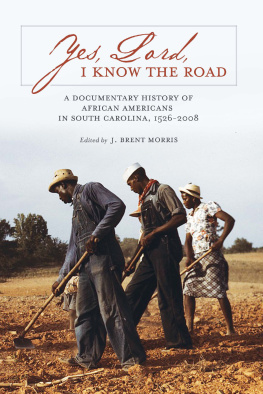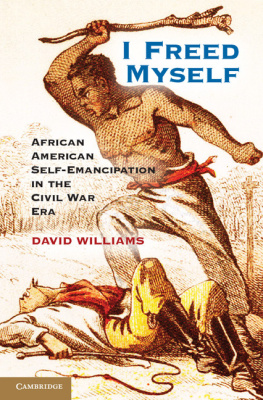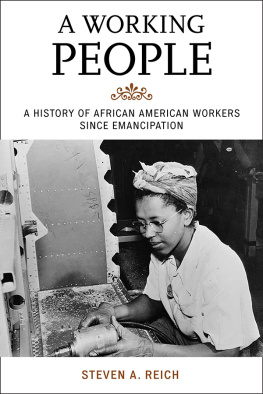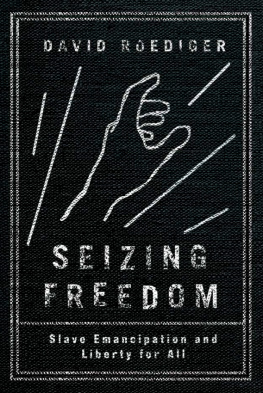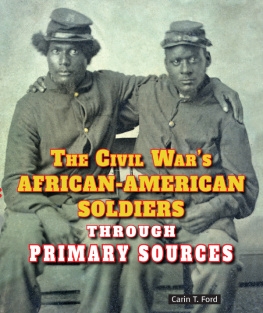African Americans in the Post-Emancipation South
The Outsiders View
Alton Hornsby, Jr.
University Press of America, Inc.
Lanham Boulder New York Toronto Plymouth, UK
Copyright 2010 by
University Press of America, Inc.
4501 Forbes Boulevard
Suite 200
Lanham, Maryland 20706
UPA Acquisitions Department (301) 459-3366
Estover Road
Plymouth PL6 7PY
United Kingdom
All rights reserved
Printed in the United States of America
British Library Cataloging in Publication Information Available
Library of Congress Control Number: 2010922647
ISBN: 978-0-7618-5105-9 (paperback : alk. paper)
eISBN: 978-0-7618-5106-6
` The paper used in this publication meets the minimum
requirements of American National Standard for Information
SciencesPermanence of Paper for Printed Library Materials,
ANSI/NISO Z39.48-1992.
To the memory of Edward F. (Ed) Sweat and Benjamin (Ben) Wall,
historians of the South
Preface
Historians and other scholars often use first-hand accounts, including oral interviews and written contemporary observations, as sources for their studies of the past. While such sources have their limitations because of the fallibility of memory and the intrusion of exaggerations and embellishments into personal recollections, they remain valuable, especially when used in conjunction with other documents, in helping us to approximate the past. This study uses these types of sources to attain glimpses of African American life in the post-emancipation South.
This study is conducted longitudinally from the 1860s through the New Deal. A broad cross section of foreign travelers as well as northern visitors are used. We have sought to have racial and gender balances. But the outsiders are largely European and Euro-American and almost entirely middle and upper class. The work is constructed in the context of contemporary anthropology, ethnography, psychology and sociology. It is based largely on travel books and articles and essays in periodicals and scholarly journals. In the endnotes, I provide a brief biographical sketch of the authors following their first mention in the text.
The contents allow a reconstruction of African American life and labor in the major aspects of black culturereligion, education, politics, criminal justice, employment and entrepreneurship, social life and statusof the times. Interspersed with the narrative are historical analyses of the events and assessments of the outsiders views as compared with scholarly treatments of the subjects. The study ends with an epilogue which synthesizes the outsiders observations and assesses their overall validity for increasing our understandings of the lives of blacks in the post-emancipation South.
Acknowledgments
I am very grateful for invaluable assistance given by several persons in the preparation of this study. They include Ms. Donna Johnson for the French translations and Robert L. Williams for the Spanish translations; the late professor Barnes F. Lathrop of the history department at the University of Texas at Austin and professor Robert A. Divine of that same department.; librarians of the Main Library of the University of Texas at Austin and the Robert W. Woodruff Atlanta University Center Library; professors Cason Hill and Delores Stephens of Morehouse College, who proofread portions of the manuscript; my student assistant Augustus Wood III; Belinda Brown, Nyla Dixon, and Bettye Spicer who typed several drafts of the manuscript; and my family, stalwart supporters throughout.
Introduction
It has been generally assumed, often without adequate verification, that the typical southern white in the post-emancipation era looked upon the African American as a distinct creature, lying somewhere between beast and man, as a creature to be hated and pitied or, most often, to be feared. Assigned general characteristics have included immorality and piousness; laziness and unindustrious; excessive joviality and constant despair; treachery and loyalty; and ignorance and avidity for education.
Many commentators on American race relations have contended that southern whites and southern blacks have seen each other so closely and for so long that their mutual view has been dimmed, leading to the misconceptions and misunderstandings which have darkened, and often bloodied, southern history. Conversely, many have claimed that outsiders have a different, less biased picture of the situation. What validity these assertions have, if any, will be more evident after an examination of the impressions which outsiders or non-southerners have attained through visiting the South.
Though outsiders can be expected to possess a certain amount of detachment, they too are inevitably open to various influences, from the contemporary historical setting, from prevailing scientific or pseudo-scientific opinions about race, from their own social, economic, and political positions at home, and to the representative or unrepresentative character of the particular persons, places, and reading matter encountered on their travels. The mere fact they are outsiders, sometimes guests, may limit the candor of the remarks made to them, or render them reluctant to pursue some lines of questioning.
In its greater aspect the present study seeks to enlarge the understanding of the life of southern African Americans by describing and interpreting eyewitness accounts thereof. The endeavor will be to determine whether or not, according to outsiders observations, the material progress of blacks from period to period was as rapid and significant as is sometimes claimed or as retarded as others contend. The findings may also be expected to add to the perception of the African Americans role in American culture. The beginning date is 1877, at the formal end of military Reconstruction in the South, and the examination extends to the eve of the Great Depression and The New Deal. The South is construed to include all of the states that were slaveholding in 1860 plus Washington D.C. Non-southerners will generally be taken to mean persons who lived outside the South until they were adults or persons native to the South who became northern residents prior to adulthood and prior to 1877.
The observers who figure in these pages are almost equally divided between natives of the United States and of foreign countries, a great majority of the foreigners being Western Europeans. Attention has been focused on what the outsiders saw and upon what they heard from African Americans. Though, perforce, their views on race relations have been noticed, the primary interest here has been on their general impressions of the group and their accounts of the everyday life of blacks--their labor, education, religion, political affairs, and social activities and attitudes.
In order to make an intelligent evaluation of outside impressions of southern blacks, it is important to bear in mind not only the more significant forces and events which influenced African American life at the time but also the contemporary opinion in the world at large, especially as represented by scientific or pseudo-scientific learning, with respect to the African Americans physical and social character.
The lives of southern blacks, as Americans, were affected by national and international events and movements, but, because they were black the effects upon them were quite distinct from the effects upon the general populace. In the period 18771900 the newly reunited United States was reaping fully the fruits of an industrial and technical revolution and setting its feet upon the world stage. For African Americans, however, this period was what Professor Rayford Logan and others have called The Nadir. The Republican Party had abandoned them to the benevolent hands of former enslavers and their descendants. Segregation, discrimination, anti-black violence, and economic exploitation were increasing. It is true that Booker T. Washington, in his Atlanta Compromise address at the Cotton States International Exposition in 1895 pointed to significant signs of economic and social progress. But others like Henry McNeal Turner and John Hope could see only more lynchings, more exploitation, and discrimination.

